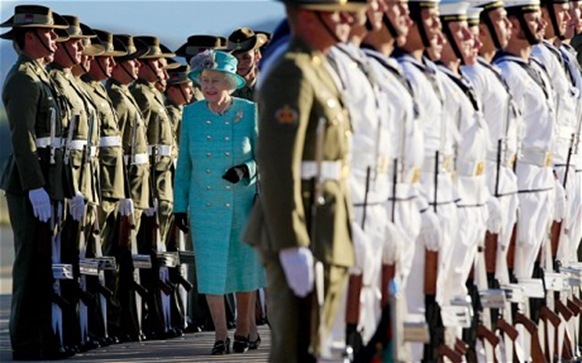The Commonwealth has "failed to stand up for democracy and human rights" and is becoming irrelevant, an internal report on the body has concluded.
The 54-member Commonwealth has not acted on repeated promises to uphold basic rights and risks losing the respect of its people, the document said.
Among the measures suggested to restore the credibility of the Commonwealth is the repeal of laws prohibiting homosexuality, a call that could trigger a high-level row next week.
The report, drawn up by senior figures from Commonwealth countries, has emerged as David Cameron prepares to meet leaders of Commonwealth states in Australia next week.
"The Commonwealth is in danger of losing its relevance" because it fails to respond to human rights violations and discrimination by member governments, the report said.
Next week’s Perth summit, which will also be attended by the Queen, will debate the report from the Commonwealth Eminent Persons Group (EPG), which has assessed the future of the group, the successor to the British Empire.

The Queen inspects an honor guard after her arrival at Fairbairn airforce base in Canberra today Photo: AP
A row between Commonwealth members about human rights has so far prevented the publication of the EPG report, but several of its conclusions have now been disclosed.
The organisation "fails to stand up for the values that it has declared as fundamental to its existence", the report says.
"These values have been violated by some member countries without an appropriate Commonwealth response, except in the event of the unconstitutional overthrow of a government.
"Fresh attention has to be focused by the Commonwealth on violations of human, political and civil rights if the association is to continue to command attention on behalf of its member states and if it is to retain the respect of its own people." The Commonwealth has recently faced calls to suspend or expel Sri Lanka over what critics say were atrocities committed by government forces against Tamil civilians during the country’s civil war in 2009.
However, the group has historically only acted against countries following military coups and the complete suspension of democracy: Nigeria, Pakistan and Fiji have all been suspended on such grounds in the past.
The EPG was set up after the 2009 Commonwealth Heads of Government Meeting to advise on reform to build a stronger, more relevant, Commonwealth. Its members include Sir Malcolm Rifkind, the former foreign secretary.
The report contains 106 recommendations aimed at giving the group a more active role in monitoring human rights in member countries.
Among them is appointing a Commissioner for Democracy who would identify "persistent violations" of basic rights by members and suggest "remedial action" against offenders.
Sri Lanka has signalled it will reject that plan, warning against giving the Commonwealth a "punitive role" on human rights
The report also says that members should be required to repeal laws outlawing homosexuality.
Some 42 Commonweatlth members still outlaw homosexuality, and Michael Kirby, the Australian member of the EPG, this week said that anti-homosexual laws were "a very special British problem".
Such laws "make it very difficult to get messages about HIV out" and should be repealed, Mr Kirby said.
The experts’ report was given to Commonwealth governments last month, but a row between members has prevented its formal publication. The Commonwealth works on the basis of consensus, meaning that a single country can block the publication of the report.
(For updates you can share with your friends, follow TNN on Facebook and Twitter )
